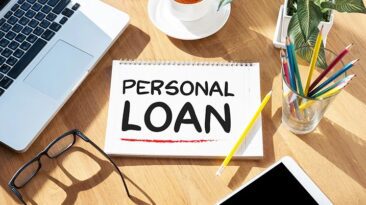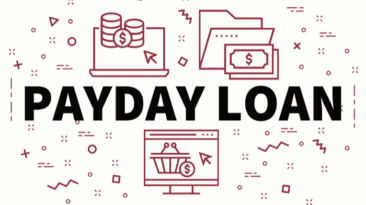When unexpected expenses arise or you’re in need of some extra funds, unsecured loans can be a valuable financial tool. Unlike secured loans that require collateral, unsecured loans provide borrowers with the flexibility of obtaining funds without putting their assets at risk. In this article, we will explore the world of unsecured loans, understanding their advantages, types, and the process of obtaining one.
What are Unsecured Loans?
Unsecured loans are loans that do not require collateral. They are based solely on the borrower’s creditworthiness and ability to repay. With no assets tied to the loan, unsecured loans are a popular choice for individuals who do not want to risk losing their assets in case of non-payment.
Types of Unsecured Loans
Unsecured loans come in various forms to cater to different needs and financial situations. Some common types of unsecured loans include:
1. Personal Loans
Personal loans are general-purpose unsecured loans that can be used for a wide range of purposes, such as debt consolidation, home improvements, or emergency expenses.
2. Credit Cards
Credit cards are a form of revolving credit, allowing you to borrow up to a certain limit and repay it over time.
3. Student Loans
Student loans provide funding for educational expenses and are often unsecured, especially federal student loans.
4. Personal Lines of Credit
Similar to credit cards, personal lines of credit provide a flexible credit line that can be accessed when needed.
5. Peer-to-Peer Loans
These loans are obtained from individual investors through online platforms, offering an alternative to traditional lending institutions.
6. Signature Loans
Signature loans are unsecured loans that rely on the borrower’s signature as a promise to repay.
How Do Unsecured Loans Work?
The process of obtaining an unsecured loan typically involves the following steps:
1. Loan Application
Submit a loan application to the chosen lender, providing details about your financial situation, income, and credit history.
2. Lender Evaluation
The lender will assess your application, reviewing your credit score, credit history, and debt-to-income ratio to determine your creditworthiness.
3. Loan Approval
If approved, you’ll receive a loan offer detailing the loan amount, interest rate, and terms.
4. Loan Disbursement
Upon accepting the loan offer, the funds will be disbursed to your designated bank account.
5. Repayment
You’ll be required to make regular monthly payments, including both principal and interest, until the loan is fully repaid.
Benefits of Unsecured Loans
Unsecured loans offer several advantages that make them an attractive option for borrowers:
1. No Collateral Required
Borrowers don’t need to pledge any assets, reducing the risk of losing valuable possessions in case of non-payment.
2. Quick Approval Process
Since no collateral evaluation is needed, the approval process for unsecured loans is generally faster.
3. Flexible Use of Funds
Borrowers can use unsecured loan funds for various purposes, giving them financial flexibility.
4. Build a Credit History
Timely repayment of unsecured loans can help improve credit scores and build a positive credit history.
Who Can Benefit from Unsecured Loans?
Unsecured loans can be beneficial for a wide range of individuals and situations, including:
1. Emergency Expenses
When faced with unexpected medical bills or car repairs, unsecured loans can provide quick access to funds.
2. Debt Consolidation
Borrowers with multiple high-interest debts can consolidate them into a single unsecured loan with a lower interest rate.
3. Short-Term Financing
For temporary financial needs, unsecured loans can bridge the gap until the next paycheck.
4. Building Credit
Individuals with limited credit history can use unsecured loans to establish a positive credit profile.
FAQs
Q: Can I get an unsecured loan with bad credit?
Yes, some lenders offer unsecured loans to individuals with bad credit, though the interest rates might be higher.
Q: What is the maximum loan amount for an unsecured loan?
The maximum loan amount for an unsecured loan varies among lenders and depends on the borrower’s creditworthiness.
Q: Are unsecured loans riskier for lenders?
Yes, since there is no collateral to secure the loan, unsecured loans pose higher risks for lenders, which is reflected in the interest rates.
Q: Can I use an unsecured loan to start a business?
Yes, unsecured loans can be used to fund the initial expenses of a new business venture.
Q: Is there a prepayment penalty for unsecured loans?
Some lenders may charge a prepayment penalty for paying off an unsecured loan before the agreed-upon term.
Q: How long does the approval process take for unsecured loans?
The approval process for unsecured loans can take anywhere from a few hours to a few days, depending on the lender and their evaluation process.
Conclusion
Unsecured loans offer a convenient and flexible way to access funds without the need for collateral. Whether you need to cover unexpected expenses, consolidate debt, or embark on a new venture, unsecured loans can be a valuable financial tool. Remember to compare lenders, understand the terms, and ensure you have a plan for timely repayment to make the most of these loans’ benefits.





Add comment